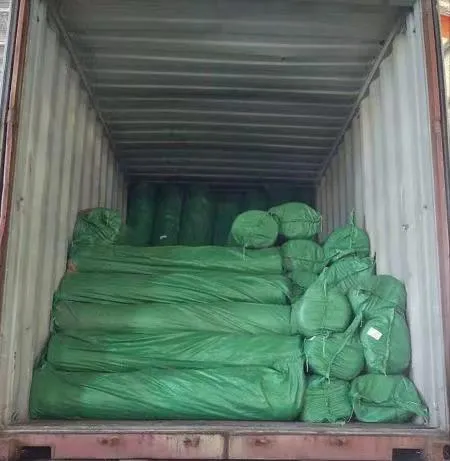The Rise of Jute Fabric in Eco-Friendly Packaging Solutions
In recent years, the packaging industry has undergone a substantial shift towards sustainability, driven by a collective awareness of environmental impact. One material that has gained considerable attention in this quest for eco-friendliness is jute fabric. Known for its durability and biodegradability, jute fabric is emerging as a favored alternative to synthetic and plastic materials traditionally used for packaging. Companies across the globe are increasingly adopting it for packing a wide variety of products, aligning with a broader push towards reducing carbon footprints and minimizing environmental degradation. Jute fabric's attributes—such as its strength, biodegradability, and minimal ecological footprint during cultivation—make it an ideal choice for companies seeking green packaging solutions. The shift is not just a trend but a significant movement towards sustainable practices in industries that have long been criticized for their environmental impact.
Jute, often honored as the 'Golden Fiber,' is a long, soft, and shiny vegetable fiber that can be spun into coarse, strong threads. Predominantly grown in the Indian subcontinent, especially in Bangladesh and India, jute is celebrated as a renewable resource with an impressively low ecological footprint. Its cultivation demands minimal fertilizers and pesticides, making it an exceptionally sustainable plant. Moreover, it also contributes to soil health, enhancing its ecological credentials further. The resilience and versatility of jute make it suitable for the production of various packaging solutions, from agricultural bags and shopping totes to wrapping materials designed to protect fragile items like ceramics and glassware. This adaptability has opened various avenues for the material, making it an attractive option for a wide range of packaging needs.
Despite the numerous benefits, challenges remain in the broader adoption of jute fabric in the packaging industry. One of the primary hurdles is the cost, as jute packaging can be more expensive compared to traditional materials. There is also a significant need for greater awareness and education about its advantages to encourage more widespread use. However, the tide is changing. Growing environmental concerns and increasing legislative pressures to reduce plastic use are driving the demand for jute fabric in packaging applications. Businesses, now more conscious of their environmental responsibilities, are exploring ways to incorporate jute into their packaging strategies. For instance, numerous e-commerce companies have started utilizing jute-based padding and packing materials, ensuring their shipments are not only sturdy but also sustainable. This shift is not just beneficial for the environment but also supports the livelihoods of farmers and workers in the jute industry. As consumers become more eco-conscious and seek products that reflect these values, the future looks promising for jute fabric as a cornerstone of the eco-friendly packaging movement.
This movement towards jute highlights a broader narrative of industrial responsibility and consumer preference converging to foster a more sustainable future. Companies, big and small, are finding innovative uses for jute packaging, leveraging its ability to be easily dyed and printed for branding purposes. This has made jute appealing to a diverse range of businesses, including large corporations and small artisans committed to making environmental statements through their products. Continued innovation in jute product quality and versatility is expected to further boost its adoption. The jute industry's growth, sparked by this increasing demand, stands to benefit not just the environment but also the economies of regions involved in its cultivation and production. The rise of jute fabric in eco-friendly packaging solutions presents a compelling case study of how environmentally conscious choices can drive industry change and offer sustainable alternatives to conventional practices.
Share
-
Lithium Battery Welding Machine | High-Precision, Fast, SafeNewsNov.17,2025
-
Aluminium Guide Roller | Anodized, Lightweight, Low-NoiseNewsNov.17,2025
-
Tofu Cat Litter Bulk – Eco, Low-Dust, Fast Clumping SupplyNewsNov.17,2025
-
Equipment for Lithium Cell Assembly | Automated & PreciseNewsNov.10,2025
-
Square File Tool – Precision Cut, Hardened Steel, VersatileNewsNov.10,2025
-
Lithium Ion Battery Assembly Machine | Automated, High-SpeedNewsNov.10,2025








